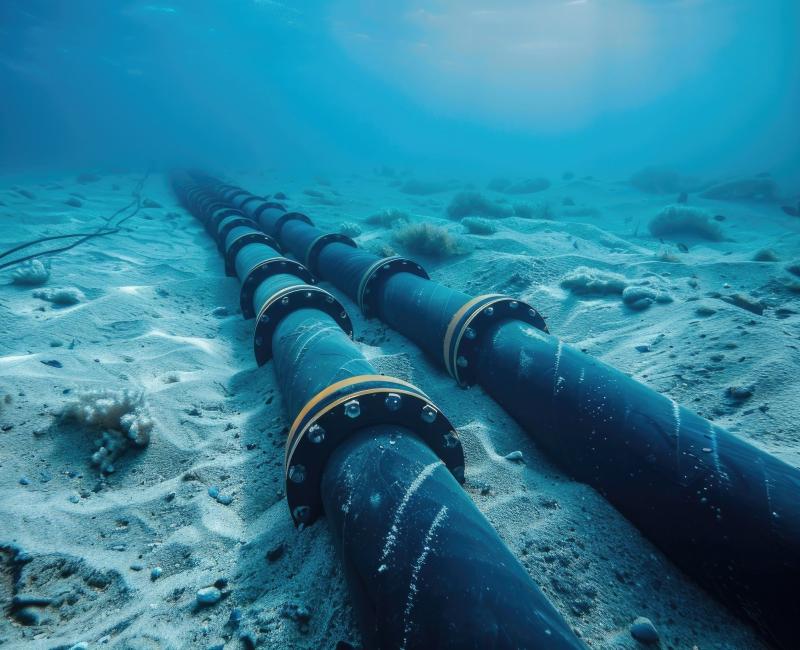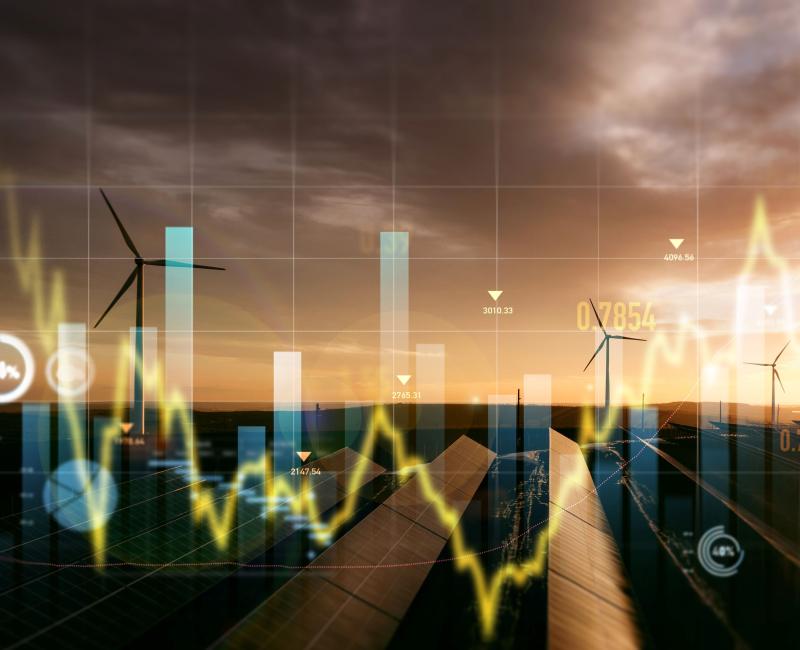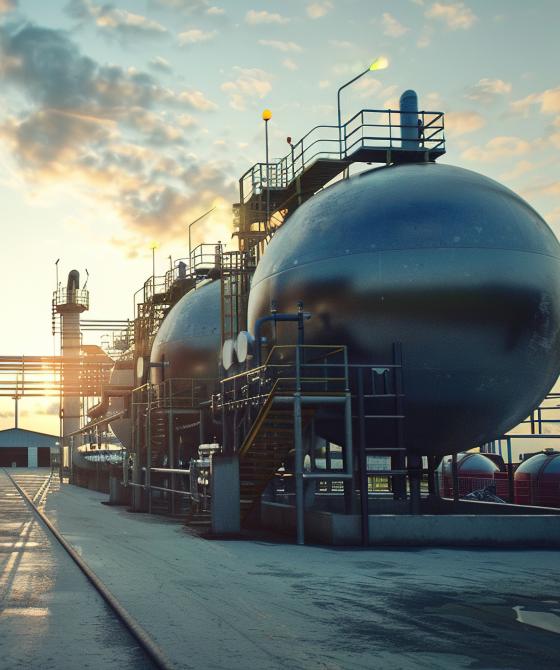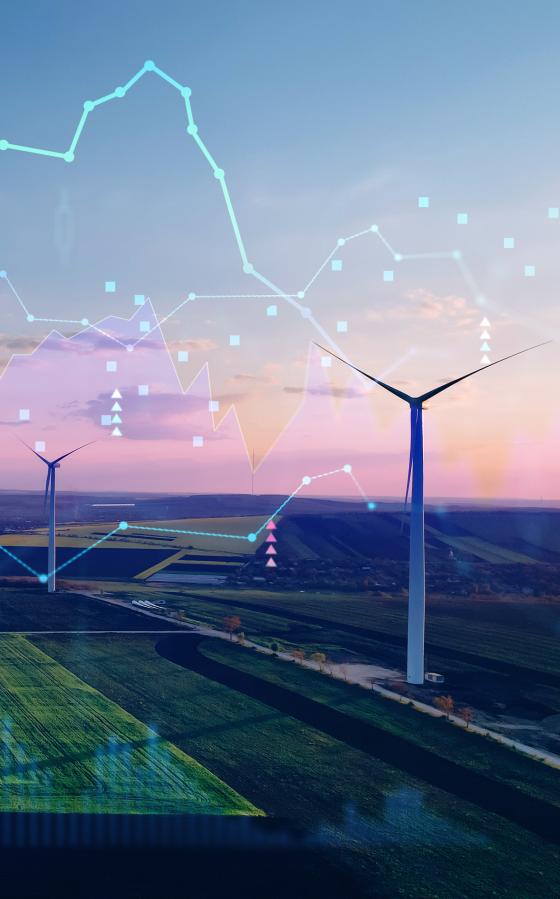Hours when generation was
mostly non-responsive.
ACER recommends aligning the Estonian gas transmission tariffs with the Network Code’s requirements

ACER recommends aligning the Estonian gas transmission tariffs with the Network Code’s requirements
What is it about?
Today, ACER releases its report on the Estonian gas transmission tariffs, directed at the Konkurentsiamet, the National Regulatory Authority (NRA) of Estonia.
The report assesses whether the proposed reference price methodology (RPM) complies with the requirements of the Network Code on Harmonised Transmission Tariff structures (NC TAR). The proposed postage stamp RPM is complemented by an inter-transmission system operator compensation (ITC) mechanism, providing part of the revenue collected between Estonia, Finland, and Latvia as part of a market merger process called ‘FINESTLAT’.
What are the key findings?
After analysing the NRA’s consultation document, ACER concludes that:
- The capacity cost driver presented is not sufficiently defined, making it unclear whether it represents an efficient indicator for network utilisation.
- There is limited assessment of the ITC’s impact on the proposed methodology, causing uncertainty in the revenue collected from the proposed RPM.
- The consistent under-recovery of revenue, combined with the implementation of a price cap regime, raises questions about the efficient estimation of target revenue under Article 17 of the Gas and Hydrogen Regulation.
- Due to insufficient information, ACER cannot determine whether the methodology used to calculate tariffs meets the requirements of cost-reflectivity, cross-border subsidisation, cross-border trade, and volume risk.
- No evidence of discrimination in applying the RPM has been identified.
What does ACER recommend?
ACER recommends that the NRA, when adopting its decision:
- Enhances the clarity of published information, ensuring all elements required by Article 26(1) of the NC TAR are included.
- Provides a more elaborate assessment of the RPM, taking into consideration the ITC’s effects on the RPM, in line with Article 7 of the NC TAR.
- Publishes a simplified tariff model, including details on the interaction between the ITC and the proposed RPM.
- Offers a detailed description of the methodology used to compute the target revenue, in line with Article 17 of the Gas and Hydrogen Regulation.
Additionally, ACER invites the Estonian NRA to evaluate the effects of potentially moving to a non-price cap regime and implementing revenue reconciliation principles.
Finally, ACER reiterates its recommendation for NRAs involved in the market integration process to jointly consult on the ITC, aiming for adopting a joint NRA decision.
Access all ACER reports on national tariff consultation documents.
Monitoring the implementation of Terms and Conditions or Methodologies (TCMs)
Monitoring the implementation of Terms and Conditions or Methodologies (TCMs)

The EU electricity network codes and guidelines require, in certain instances, the development of more detailed rules and procedures, known as ‘Terms and Conditions or Methodologies’ (TCMs). These technical provisions ensure the establishment of a common regulatory framework for the internal electricity market and contribute to the EU’s decarbonisation objectives.
TCMs are developed by Transmission System Operators (TSOs) or Nominated Electricity Market Operators (NEMOs) and are approved by either the relevant National Regulatory Authority (NRA) or ACER. Since 2016, over 190 methodologies have been adopted, each in line with the specific deadlines established by the respective regulation.
TCMs can apply at:
- European level, governing energy operations across all Member States.
- Regional level, spanning different geographical areas within the EU and addressing specific regional needs.
Monitoring the implementation of Terms and Conditions or Methodologies (TCMs)
What’s the role of ACER?
Under the ACER Regulation and the Electricity Regulation, ACER is responsible for monitoring and analysing the implementation status of the network codes and guidelines, as well as to assess their impact on the harmonisation of market rules.
ACER monitoring aims at facilitating market integration and ensuring non-discrimination, effective competition, and efficient market functioning.
To fulfil its role, ACER gathers information on the implementation of each TCM from NRAs and TSOs and presents an overview of their status through dedicated webpages:
Monitoring the implementation of Terms and Conditions or Methodologies (TCMs)
Monitoring of TCMs
ACER's interactive dashboard helps visualise TCMs' different implementation status by region and country:
ACER’s report on EU electricity wholesale market integration shows progress but challenges persist

ACER’s report on EU electricity wholesale market integration shows progress but challenges persist
What is it about?
The annual ACER report on EU electricity wholesale market integration:
- Evaluates progress in EU electricity market integration across all market time periods (forward, day-ahead, intraday).
- Highlights challenges in integrating balancing markets, developing forward markets, and the slow progress in implementing methodologies that define operations in day-ahead and intraday markets.
- Outlines ACER's recommendations and ongoing efforts to improve electricity market efficiency, infrastructure investment and usage, and enhance flexibility through demand response.
Check out ACER’s new interactive electricity dashboards
For the first time, this annual monitoring report is accompanied by three separate dashboards on key market indicators such as prices and churn rates (a liquidity metric), balancing data (e.g., volumes, prices and cross border exchanges of balancing services) and data on long-term transmission rights (including risk premia).
What are the key findings?
In March 2024, ACER reported frequent occurrences of negative electricity prices in the EU. In June 2024, the Agency warned of rising congestion management costs in the EU power grid, which reached €4 billion in 2023. ACER emphasised the importance of increased cross-zonal trading capacity.
Today’s report by ACER finds that:
- With the expansion of renewable energy, the role of fossil fuels in electricity systems is diminishing. The new generation mix is marked by a 10% rise in hours of mostly non-responsive generation (generation that does not adapt to short-term changes in demand) in 2023. ACER stresses the need to enhance power system flexibility for an efficient energy transition.
- However, delays in implementing market design changes hinder flexibility. 27% of the market design rules (methodologies, terms, and conditions) are delayed in terms of implementation.
- Balancing market integration remains limited in 2023. The Transmission System Operators (TSOs) of only four Member States have joined the balancing platforms which went live in 2022. ACER encourages more TSOs to join the balancing energy platforms, highlighting that increased participation can expand cross-zonal exchanges and reduce occurrences of high electricity balancing prices.
- Current electricity forward markets offer investors visibility on future electricity prices for only up to one year. ACER has identified shortcomings in regulatory measures aimed at addressing this challenge and proposed improvements.
What are ACER’s recommendations?
The report contains a suite of recommendations. In short, ACER:
- Recommends taking a proactive approach to further integrate power markets and strengthen connections.
- Recommends an efficiency-first approach for both power infrastructure investments and usage, ensuring that every installed megawatt is fully used.
- Stresses that improving long-term investment structures and ensuring better market integration will drive Europe's energy transition and economic growth.
What’s next?
ACER will:
- Publish a new report on power infrastructure investment in December 2024.
- Review the rules (terms, conditions and methodologies) that define market operations starting in 2025.
- Propose a network code on demand-side flexibility to the European Commission by March 2025.
- Continue to monitor power TSOs' involvement in balancing platforms.
These steps aim to enhance market efficiency and contribute to a resilient, flexible electricity infrastructure that can support Europe’s energy transition and long-term economic stability.
ACER to decide on amending the electricity single intraday coupling products methodology

ACER to decide on amending the electricity single intraday coupling products methodology
What is it about?
On 21 October 2024, ACER received a proposal from Nominated Electricity Market Operators (NEMOs) to amend the single intraday coupling (SIDC) products methodology.
What is the methodology about?
The SIDC products methodology is defined by the Capacity Allocation and Congestion Management (CACM) Regulation. The methodology specifies the types of products that can be traded within the EU’s continuous single intraday market and in intraday auctions (IDAs). Here, trading begins the day before delivery and continues through the day of delivery, supporting real-time adjustments to supply and demand across borders.
Why amend the methodology?
In September 2024, ACER amended the single day-ahead coupling (SDAC) products methodology (where trades occur the day before delivery) to allow the introduction of 15-minute trading products (Decision 13/2024). The proposed changes for the SIDC products methodology aim to align with this update, allowing the introduction of 15-minute trading products in both day-ahead and intraday markets.
Harmonising the rules across both markets is necessary to comply with the EU Electricity Regulation and reduce entry barriers for market participants trading short-term products. These updates will enable participants to trade electricity in 15-minute intervals throughout the day, enhancing market flexibility.
What are the next steps?
ACER expects to decide on the amended methodology by April 2025.
Contact information
Interested parties may contact ACER on this matter at ACER-ELE-2024-012@acer.europa.eu by 11 December 2024 at the latest.
Relevant documents
All NEMO's proposal to amend the SIDC products methodology.
All NEMO's proposal to amend the SIDC products methodology (in track changes).
European hydrogen markets
-
 Gas
Gas

2024 Market Monitoring Report
This report marks the start of ACER’s work in monitoring the emerging European hydrogen market (as mandated by the Hydrogen and Gas Decarbonisation Package).
This first hydrogen Market Monitoring Report (MMR), covering 2023 and first half of 2024, sheds light on the main regulatory challenges of the hydrogen markets at EU and national level. It addresses issues such as the repurposing of gas networks and the need for greater coordination by hydrogen, natural gas and electricity network operators.
What market trends did ACER monitoring find?
- Current levels and trends of hydrogen demand mean the EU is likely to miss its 2030 strategic goal of 20 Mt renewable hydrogen consumption:
- Current hydrogen consumption at EU level is 7.2 Mt (99.7% of it produced from fossil fuels).
- EU renewable energy and decarbonisation targets can increase demand for renewable and low-carbon hydrogen by 2030, but so far uptake has been slow.
- Slow electrolysers rollout means the EU is likely to miss its renewable hydrogen production target:
- Total installed capacity of electrolysers in Europe in 2023 was 216 MW.
- Another 1.8 GW of projects expected to become operational by end-2026.
- Around 70 GW of projects announced to be operational by 2030, but few are advanced.
- Overall planned electrolyser capacity is significantly less than the 100+ GW needed to reach EU’s 10 Mt renewable hydrogen production target by 2030.
- High costs prevent renewable hydrogen uptake:
- Renewable hydrogen produced via electrolysis is 3 to 4 times more expensive than hydrogen produced from natural gas, discouraging early offtake.
- Significant electrolysers scale-up and renewable electricity cost reductions are necessary to reduce renewable hydrogen production costs.
- Significant infrastructure plans face uncertainties in implementation:
- 42,000 km of hydrogen pipelines, numerous storage projects and terminals are planned for the next decade, but only 1% has reached final investment decision, as future hydrogen demand uncertainties pose significant challenges to project promoters.
- Integrated planning by (gas, electricity and hydrogen) network operators is needed to ensure grid development at sufficient pace and to optimally locate electrolysers.
- Supporting initiatives to close investment gaps:
- A lot of EU-wide and national support schemes are set to bridge the investment gap, but it can be challenging for project investors to navigate them.
- European Hydrogen Bank’s (EHB) November 2023 auctions resulted in low premiums, revealing cases of low renewable hydrogen production costs and some off-takers’ willingness to pay within the cost range.
- Cost uncertainties still pose risks for early investors, highlighting the need for clearer cost information to increase demand for hydrogen.
What are ACER’s key recommendations?
- Quickly transpose the hydrogen and decarbonised gas package into national legislation and proceed with its implementation. Member States need to develop their national hydrogen markets in line with the EU framework to enable infrastructure development and avoid fragmentation.
- Speed up electrolysers deployment and decarbonisation of electricity sector to increase renewable hydrogen competitiveness. Capital expenditures and electricity are the primary cost drivers for renewable hydrogen. Scaling up global electrolyser production and access to cheap renewables is key to lower the cost of renewable hydrogen.
- Improve forecasting and accelerate integrated planning to identify realistic hydrogen infrastructure needs, avoiding overinvestments and reducing cost related to under-recovery risks.
- When future demand is highly uncertain, consider incremental infrastructure development based on market needs (to avoid building too much network too fast and stranded assets).
- Consider carefully the repurposing of gas networks for hydrogen to minimise costs, while not overlooking the potential impacts on the broader gas sector (including security of gas supplies).
- Address future demand risk in financing hydrogen networks. Properly identify different risks associated with uncertain future hydrogen demand. Allocating these risks among stakeholders (considering also cross-border implications) is key to enable hydrogen infrastructure investments.
- Provide market certainty over the role of non-renewable, low-carbon hydrogen. To reduce hydrogen uptake costs, some stakeholders advocate to use hydrogen produced from natural gas with carbon capture in the short/mid-term. Clarity on the uptake of non-renewable hydrogen should be provided by the European Commission and Member States.
Highlights
Report
Europe's Hydrogen and Gas Decarbonisation legislation (2024) tasks ACER with monitoring the emerging hydrogen market.
ACER's first hydrogen monitoring report highlights that, despite ambitious EU strategies, hydrogen projects face risks from uncertainties of future hydrogen demand and high costs.
Infographic
Interested in the main highlights of the report?
Webinar
ACER will hold a webinar to present the main findings and recommendations of this report.
When?
Tuesday, 3 December 2024 at 10:00 CEST.

Additional information
- Access the underlying datasets
Progress of EU electricity wholesale market integration
-
Electricity

2024 Market Monitoring Report
Further integrating EU electricity markets is essential for efficiently matching supply and demand as renewable energy, which is weather-dependent, grows in the generation mix. Effective EU electricity market integration allows low-priced surplus renewable energy from one area to be shared with neighbouring regions.
A well-integrated EU power market:
- reduces price volatility;
- increases investor confidence; and
- promotes competitive electricity prices, supporting the EU's energy transition and economic competitiveness.
What is in this ACER report?
- The report evaluates progress in EU electricity market integration across all market time periods (forward, day-ahead, intraday).
- It analyses the challenges in integrating balancing markets, developing forward markets, and the slow progress in implementing methodologies for day-ahead and intraday market operations.
- It includes ACER's recommendations and ongoing efforts to improve electricity market efficiency, infrastructure investment and use, and flexibility through demand response.
Check out ACER’s new interactive electricity dashboards
For the first time, this annual monitoring report is accompanied by three dashboards on key market indicators such as prices and churn rates (a liquidity metric), balancing data (e.g., volumes, prices and exchanges) and data on long-term transmission rights (including risk premia).
What are ACER’s key findings?
In March 2024, ACER reported frequent negative electricity prices across the EU. In June 2024, the Agency warned (in its electricity cross-zonal report) of rising congestion management costs in the EU power grid, which reached €4 billion in 2023. ACER emphasised the importance of increasing cross-zonal capacity for trade.
This ACER electricity market integration report reveals that:
- With the expansion of renewable energy, the role of fossil fuels in electricity systems is diminishing. The new generation mix is marked by a 10% rise in hours of mostly non-responsive generation (generation that does not adapt to short-term changes in demand) in 2023. ACER stresses the need to enhance power system flexibility for an efficient energy transition.
- However, delays in implementing market design changes hinder flexibility. 27% of market design rules (methodologies, terms, and conditions) are delayed in terms of implementation.
- PICASSO, MARI and TERRE are the Transmission System Operators’ (TSOs’) projects establishing the three European electricity balancing platforms. Balancing market integration remained limited in 2023. The TSOs of only four Member States were active on the balancing platforms in 2023. By early November 2024, two additional TSOs had joined PICASSO and three had joined MARI. ACER encourages more TSOs to join the balancing energy platforms, highlighting that increased participation can expand cross-zonal exchanges and reduce the occurrences of high electricity balancing prices.
- Currently, electricity forward markets offer investors visibility on future prices for up to one year only, limiting long-term investment certainty. In 2023, ACER proposed improvements to long-term transmission rights (LTTRs) to strengthen forward markets and support the energy transition.
What does ACER recommend?
ACER recommends taking a proactive approach to further integrate power markets and strengthen connections.
Integrating markets, strengthening connections
- Governance: ACER and national regulators to monitor methodologies that define market operation (in 2025). European Commission to assess ACER’s forward market proposals (by January 2026).
- Market efficiency: With updated balancing rules, ACER urges TSOs to join balancing platforms to enable more exchanges of balancing energy. ENTSO-E and TSOs to improve data quality for monitoring balancing (in 2025).
- Power Purchase Agreements (PPAs): ACER to start monitoring PPAs (in 2025).
Stronger infrastructure, stronger future
- Efficiency-first approach: Full utilisation of infrastructure, focus on optimising every installed megawatt.
- Smart investments: ACER’s 2021 position paper calls for incentivising smart grid upgrades to manage renewable energy variability. Upgrading transmission lines and rolling out innovative grid technologies is essential. ACER to release infrastructure development report (December 2024).
- Connectivity: ACER to continue monitoring the progress towards the requirement that 70% of transmission capacity be made available by TSOs for cross-zonal trade.
- Grid tariffs: ACER to review electricity network tariff approaches (in 2025) and continue offering best practices on setting tariffs to reflect real network costs.
Breaking barriers, building opportunities
- Flexibility through demand response: As a follow up to its demand-side response assessment (December 2023), ACER will publish a list of no-regret measures (early 2025).
- Regulatory framework: ACER is driving the development of the framework for demand-side flexibility. Following its public consultation (2024) on the topic, ACER will submit a proposal for a network code on demand-side flexibility to the European Commission (by March 2025).
What are the next steps?
- ACER will continue to monitor TSOs' involvement in balancing platforms.
- December 2024: ACER will publish its first report on power infrastructure investment.
- Early 2025: ACER will begin an in-depth review of methodologies that define market operations.
- By March 2025: ACER will propose a network code on demand-side flexibility to the European Commission.
These steps aim to enhance market efficiency and contribute to a resilient, flexible electricity infrastructure, supporting Europe’s energy transition and long-term economic stability.
Highlights
-
+10%
-
7,000 h
Prices below 5€/MWh
(1,400 hours in 2019). -
27%
Methodologies face
implementation delays in 2024.
Report
ACER 2024 report finds that:
- With the expansion of renewable energy, the role of fossil fuels in electricity systems is diminishing. The new generation mix is marked by a 10% rise in hours of mostly non-responsive generation (generation that does not adapt to short-term changes in demand) in 2023. ACER stresses the need to enhance power system flexibility for an efficient energy transition.
- However, delays in implementing market design changes hinder flexibility. 27% of market design rules (methodologies, terms, and conditions) defining market operations faced implementation delays in 2023.
- In 2023, low electricity market flexibility led to price spikes and reduced renewable energy profitability, despite average day-ahead prices remaining twice as high as pre-2020 levels.
Key market indicators
This dashboard provides the fundamental market indicators for the forward, day-ahead and intraday timeframes. This includes:
- Daily prices & volumes.
- Monthly churn factors. The churn rate (or the number of times electricity generated in a market is subsequently traded) is an indicator of liquidity.
Valuation of Long-Term Transmission Rights (LTTRs)
This dashboard provides an overview of long-term transmission rights and their associated risk premia. This includes:
- Ex, post and forward risk premia.
- Net financial transfers.
- Auction competitions.
Balancing
This dashboard provides an overview of the evolution of key balancing market indicators. This includes:
- All types of reserves.
- Volumes and prices.
- The exchange of balancing services within the EU.
Additional information
- Access the underlying datasets
ACER’s latest REMIT Quarterly is out

ACER’s latest REMIT Quarterly is out
What is it about?
ACER’s REMIT Quarterly provides updates on the Regulation on Wholesale Energy Market Integrity and Transparency (REMIT) and related activities, offering insights into this year’s revision of the REMIT Regulation to keep stakeholders informed on changes that enhance transparency and integrity in the European energy market.
What is in the latest REMIT Quarterly?
The latest edition covers the third quarter of 2024 and includes:
- Key takeaways from two joint roundtable meetings (17 and 18 September 2024) with Registered Reporting Mechanisms (RRMs), Inside Information Platforms (IIPs), and Associations of Energy Market Participants (AEMPs) on delegated acts for RRMs and IIPs.
- The announcement of the next roundtable meeting with AEMPs, Organised Market Places (OMPs), RRMs, and IIPs on data reporting, which will be held on 26 and 28 November 2024. This meeting will focus on the upcoming revision of the REMIT Implementing Regulation and data reporting guidance, including the new Annex to the Transaction Reporting User Manual (TRUM).
- The latest:
- List of OMPs and of Standard Contracts.
- List of accepted Energy Identification Codes (EICs) which identifies delivery points, zones for electricity or gas supply, and derivative contracts.
- Overview of REMIT breach cases in 2024, with 371 cases under review at the end of the third quarter.
- Overview of trading on OMPs, showing a notable increase compared to the same period last year.
- Statistics for RRMs’ contingency reports.
- Other REMIT updates.



